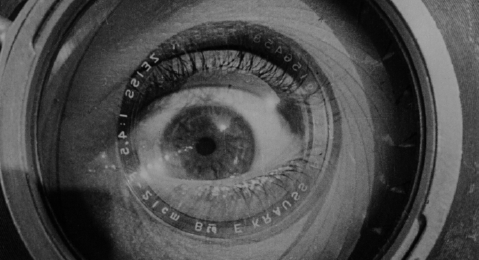The Russian/Soviet director Dziga Vertov is without question one of the most important documentary filmmakers in history. He was committed to artistic experimentation and the use of nonfiction images and yet was a rigid supporter of Soviet policies and a fierce proponent of montage editing. He was also a difficult, opinionated, occasionally irascible artist, who consistently worked as part of a collective. This series focuses on his celebrated silent and sound films, highlighting his aesthetic and methodological innovations. John MacKay, Professor of Slavic Languages and Literatures and of Film Studies at Yale University, provided introductory remarks for screenings of "Man with a Movie Camera" (screened with live piano accompaniment) on April 6 at 7 p.m. and "Enthusiasm" ("Symphony of the Donbas") on April 7 at 3 p.m. This partnership was supported through IU Cinema’s Creative Collaborations program.
This series was sponsored by the Center for Documentary Research and Practice, Russian and East European Institute, the Department of Slavic and East European Languages and Cultures, The Media School, Cinema and Media Studies, and IU Cinema.
Three additional Vertov films were screened prior to this event:
ADDITIONAL DZIGA VERTOV FILMS:
"A Sixth Part of the World"*
(1926) Directed by Dziga Vertov
March 21 – Wednesday – 7:30 p.m.
"Stride Soviet"*
(1926) Directed by Dziga Vertov
March 28 – Wednesday – 7:30 p.m.
"Three Songs of Lenin"*
(1934) Directed by Dziga Vertov
April 11 – Wednesday – 7:30 p.m.
*Screenings took place in the IU Moving Image Archive Screening Room in the Herman B Wells Library.
Free, but reservations required: http://iub.libcal.com/calendar/screening-room.


